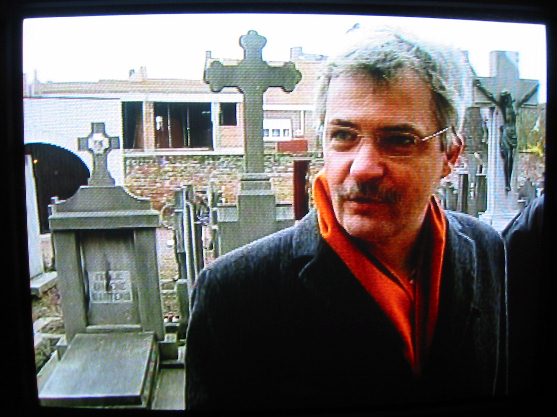 The latest issue of Shrinkrapradio is an example of such. In Confronting Death, Dr. Dave speaks with Steven Shaps about dealing with death and accepting death in life. Apart from having death as a subject, tough by nature, the guest Steven Shaps is not easy to be listening to for the regular audience. His dreamy voice, his intuitive speech, long sentences and rather general statements make for tough listening. I think this is a very good episode (well done, Dr. Dave!), but one that takes considerable effort to take in.
The latest issue of Shrinkrapradio is an example of such. In Confronting Death, Dr. Dave speaks with Steven Shaps about dealing with death and accepting death in life. Apart from having death as a subject, tough by nature, the guest Steven Shaps is not easy to be listening to for the regular audience. His dreamy voice, his intuitive speech, long sentences and rather general statements make for tough listening. I think this is a very good episode (well done, Dr. Dave!), but one that takes considerable effort to take in.Another example is Undoing the Ego. Nouk Sanchez, and her collaborator, Tomas Vieira, explain their world view and the therapy they have developed. The views are far away from common sense, fundamentally, as they regard reality, the real world as common sense holds it, to be a dream. Consequently, it is not so easy to bear with them as they explain their views on love, miracles and the proper way to conduct life. Again this is an interesting and engaging episode and I have enormous respect for Dr. Dave to pull this one off, but one needs to be prepared for the content, lest this seems totally wasted listening.
More Shrinkrapradio on this blog:
Process Work,
Authoritarianism,
Leadership and AI,
Dysfunctional personalities in the workplace,
Adventure Therapy
More Steven Shaps: Wise Counsel.




